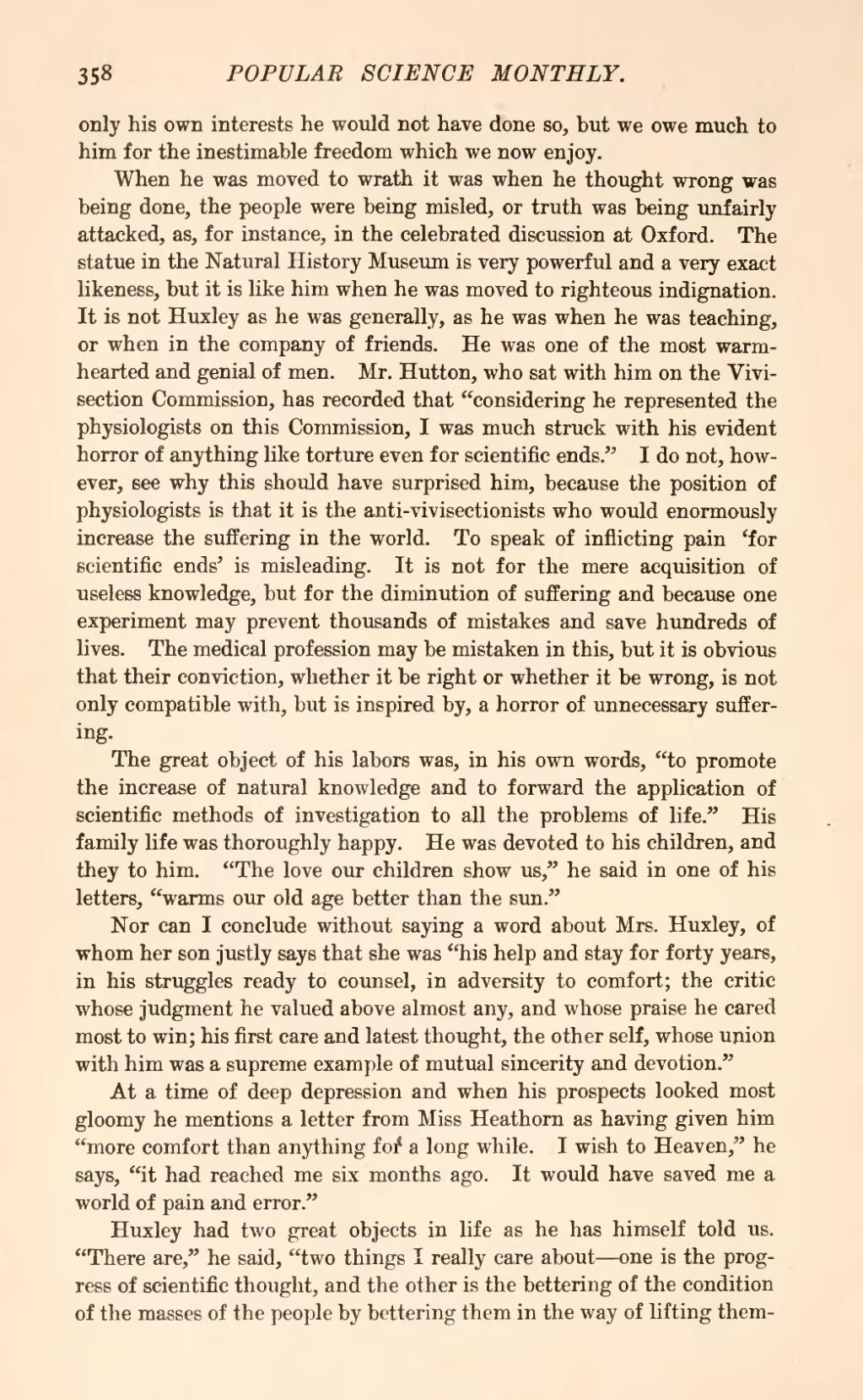only his own interests he would not have done so, but we owe much to him for the inestimable freedom which we now enjoy.
When he was moved to wrath it was when he thought wrong was being done, the people were being misled, or truth was being unfairly attacked, as, for instance, in the celebrated discussion at Oxford. The statue in the Natural History Museum is very powerful and a very exact likeness, but it is like him when he was moved to righteous indignation. It is not Huxley as he was generally, as he was when he was teaching, or when in the company of friends. He was one of the most warmhearted and genial of men. Mr. Hutton, who sat with him on the Vivisection Commission, has recorded that "considering he represented the physiologists on this Commission, I was much struck with his evident horror of anything like torture even for scientific ends." I do not, however, see why this should have surprised him, because the position of physiologists is that it is the anti-vivisectionists who would enormously increase the suffering in the world. To speak of inflicting pain 'for scientific ends' is misleading. It is not for the mere acquisition of useless knowledge, but for the diminution of suffering and because one experiment may prevent thousands of mistakes and save hundreds of lives. The medical profession may be mistaken in this, but it is obvious that their conviction, whether it be right or whether it be wrong, is not only compatible with, but is inspired by, a horror of unnecessary suffering.
The great object of his labors was, in his own words, "to promote the increase of natural knowledge and to forward the application of scientific methods of investigation to all the problems of life." His family life was thoroughly happy. He was devoted to his children, and they to him. "The love our children show us," he said in one of his letters, "warms our old age better than the sun."
Nor can I conclude without saying a word about Mrs. Huxley, of whom her son justly says that she was "his help and stay for forty years, in his struggles ready to counsel, in adversity to comfort; the critic whose judgment he valued above almost any, and whose praise he cared most to win; his first care and latest thought, the other self, whose union with him was a supreme example of mutual sincerity and devotion."
At a time of deep depression and when his prospects looked most gloomy he mentions a letter from Miss Heathorn as having given him "more comfort than anything for 1 a long while. I wish to Heaven," he says, "it had reached me six months ago. It would have saved me a world of pain and error."
Huxley had two great objects in life as he has himself told us. "There are," he said, "two things I really care about—one is the progress of scientific thought, and the other is the bettering of the condition of the masses of the people by bettering them in the way of lifting them-

